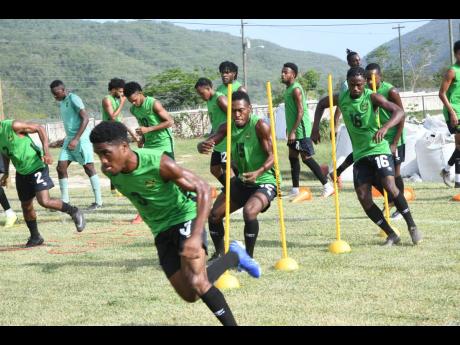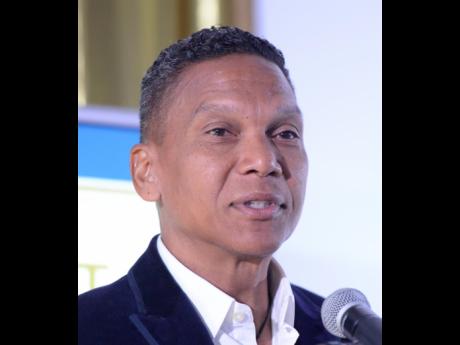Dehring says CBAs not feasible in Caribbean
Businessman Chris Dehring says that instituting a collective bargaining agreement (CBA) that would provide set payment terms for players would be difficult to implement regionally because of the lack of guaranteed income for sports federations in the Caribbean.
His comments are in the context of the leaked recording detailing the contentious payment negotiations between the Jamaica Football Federation (JFF) and its senior men’s team ahead of its two international friendly matches against Saudi Arabia in November.
The spat was the latest in a pattern of incidents where players and the JFF have engaged in disputes regarding payments for intentional matches. Former Trinidad and Tobago goalkeeper Shaka Hislop has advocated for contracts to be determined ahead of time before major international assignments, outlining the CBA structure used by the United States Soccer Federation (USSF) as a point of reference.
However, Dehring says that having a CBA in the Caribbean would be challenging because of the uncertainty of income generated to pay the players.
“Collective bargaining agreement works, but it works based on particular circumstances,” he said. “We don’t have two professional sports in the Caribbean where you have that guaranteed income, and so on. So it makes it very difficult to have a collective bargaining agreement.”
REVENUE
CBAs usually run for a set period of time that outline agreed-upon terms on how revenue is shared among players, and in the case of national teams, outline specific payments terms and other considerations. These are usually negotiated between the federation and a body representing the players. Dehring says that the challenge in securing profitable sports rights in the region is another obstacle for such a measure to be used.
“JFF will not be able to sign long-term television contracts that sign X amount of dollars per year so that they can have a collective bargaining agreement that says, ‘Okay, 25 per cent of all revenue will go into the CBAs for the players.’
“So we have a very peculiar challenge in the Caribbean,” Dehring said. “Revenue is up and down, and generally, we simply don’t have the revenue base that really can give effect to a collective bargaining agreement.”
ACCOUNTABILITY
However, he says that an alternative can be found to prevent future confrontations in reaching contracts but that there must be trust, accountability, and proper planning from sports administrators.
“The absolute basic thing that has to be put in place is transparency,” he said. “Players need to understand exactly where the money is going. They may not agree necessarily with some of the things, [but] you have to establish a total level of trust. That can only be done by transparency of accounting, sharing the numbers with the players, showing exactly where the expenditures are going, and so on.”
In an interview with The Gleaner on January 2, JFF general secretary Dalton Wint said that they would be in discussion with the players ‘shortly’ to finalise payment terms in advance of the Concacaf Gold Cup tournament and the FIFA World Cup qualifiers, which are scheduled to be held in July and September, respectively.
“We will be very proactive and ensure that you provide, from your [the players’] side what is required, what is necessary, and what is affordable [so] that you don’t have much issue going into 2021,” Wint said.


